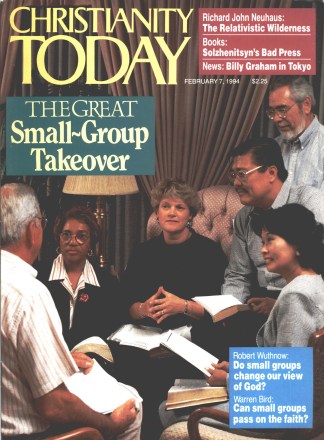Portraying someone as beloved as C. S. Lewis on film is risky. The performance can become overly sentimental, elevating the subject to mythological stature. On the other hand, it is easy to overemphasize flaws in a “warts-and-all” treatment that diminishes the true legacy of the author of Mere Christianity, The Screwtape Letters, and The Chronicles of Narnia.
In Shadowlands, director-producer Richard Attenborough travels a third and more difficult road, reminding us that regardless of fame, stature, or accomplishments, God is never finished with us in this lifetime. In Shadowlands, we see “Jack” Lewis as his associates might have seen him, a brilliant debater and beloved public figure who lived an emotionally isolated bachelor’s life.
Beginning with William Nicholson’s fine script, Attenborough directs Anthony Hopkins in the best performance of his career. Hopkins is best known to mainstream audiences as the serial killer Hannibal Lecter in Silence of the Lambs, a gory movie inexplicably named best picture at the 1991 Academy Awards.
Hopkins’s greatest talent is in portraying men trapped within their own emotions. In Shadowlands, Hopkins moves Lewis out of the shell. By the end of the film, his Jack Lewis has progressed emotionally and spiritually.
As good as Lewis
The story of Lewis’s romance with Joy Gresham is as compelling as Lewis’s fiction. The cloistered life he built for himself at Oxford was an understandable reaction to the loss of his beloved mother at age nine and the horror of the trenches in the Great War, where he fought as a young man and was wounded. But protection led to isolation. To fall in love, Lewis once again had to risk great pain. Hopkins’s Lewis explores the forces that keep a man trapped inside himself and the forces that draw him out.
Joy Gresham was one of many readers who corresponded with Lewis, not only about his books, but also about faith and life. She visited Lewis with her young son as she approached the brink of a hurtful divorce. Their epistolary acquaintance slowly became a friendship. Over time, friendship developed into a grand passion that transformed Lewis and Gresham and drew them closer to their Creator.
Although Debra Winger’s Gresham is a highly intelligent woman who once shared a poetry prize with Robert Frost, it is her disarming, almost proletarian directness that wins Lewis’s heart and draws him from his carefully composed emotional cocoon. Gresham begins as an admiring fan and becomes a friend who is unafraid to challenge Lewis intellectually. But she is also a mother who understands that human beings are created—as Lewis said—for intimacy and ecstasy.
What separates Shadowlands from ordinary romances is that it is built upon eros rather than erotica. Lewis and Gresham slowly discover one another as human beings. They develop a chaste friendship based first on mutual respect, then on sacrifice. When they marry and finally acknowledge their love, it is not a “relationship” that binds them but a great love.
Not just a love story
When death ultimately separates them, it is the memory of eros, the true binding of two human beings in love, that sustains Lewis in his grief.
In later years, Lewis wrote to console his bereaved friend Sheldon Vanauken, “I think that we are meant to experience eros only once in this life.” In Shadowlands, we see two people who take great risks to experience great joy.
The central question addressed by Shadowlands is whether it is better to live safely or to risk all for transcendent love. The love affair is a reflection of the Christian life. Great faith must exist in tension with great doubt. Belief without the looming specter of doubt is not really faith, because nothing is at risk.
In an increasingly fragmented and cynical world, Shadowlands could not be more timely. Courtship, the cautious process of learning to know and then love someone, has been replaced by perfunctory sexuality and the fear of commitment.
While the filmmakers have taken some liberties with facts—for instance, one Gresham son, not two—and simplified some of Lewis’s complex musings for the sake of brevity and narrative line, the film is generally true to Lewis’s life. Douglas Gresham, himself a committed Christian, says he is pleased with the portrayal of his family.
Shadowlands is a credit to Lewis’s work and stands, without preaching, as a tribute to his life. It serves as a powerful counterpart to the bland rhetoric about traditional family values and as a compassionate reproof to the lovelessness of modern “relationships.”
By Stefan Ulstein.










